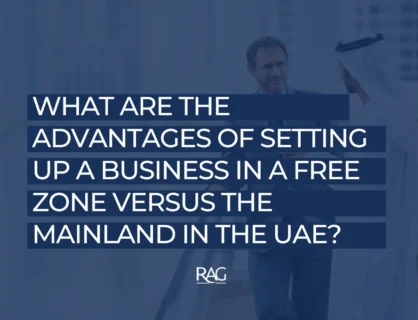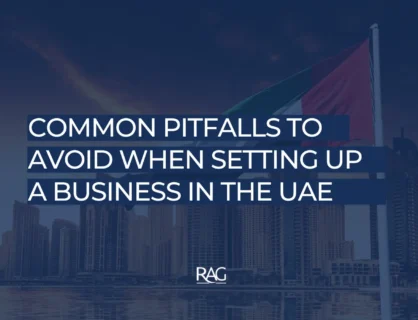How to Start Your Consulting Business in Dubai?
You’ve got experience. You’ve solved real problems. People often ask you for advice in your field. And now, you’re wondering, what if you could turn that into a business?
Starting a consulting business in Dubai can be a smart move. The city is buzzing with new ventures, government-backed innovation, and an ever-expanding need for experts in everything from marketing and HR to engineering and sustainability.
If you’ve been thinking about stepping into the consulting game, this guide will walk you through every step, with a UAE twist.
Step 1: Define Your Niche
Consulting is a broad field. To succeed, you’ll need to narrow your focus.
Start by asking:
- What problem do I solve?
- Who do I help?
- What results do I deliver?
Instead of being a general business consultant, maybe you’re a supply chain strategist for e-commerce startups. Or a content consultant for health brands.
The more specific you are, the easier it is for your audience to find you, trust you, and pay you.
In a city like Dubai, where industries are fast-moving and diverse, carving out your niche gives you an edge.
Step 2: Validate Your Offer
Before you build a fancy website or rent an office, talk to people.
Ask potential clients:
- What’s their biggest challenge in your area of expertise?
- How are they currently solving it?
- What would they pay to fix it faster or better?
You don’t need hundreds of responses. Even five solid conversations can give you direction.
Based on your findings, design a simple service package, something that solves a clear pain point. You can always refine your offer later.
Step 3: Get Your Business Licensed
In the UAE, you can’t just start offering services and collecting payments. You need to be registered.
There are two popular options:
- Mainland license – If you want to work with government entities or need full flexibility.
- Free zone license – If you want a cost-effective setup with 100% ownership and fewer restrictions.
As a consultant, you may not need a physical office right away. Some zones offer flexi-desk packages and virtual offices, which keep things lean.
At RAG, we’ve helped hundreds of consultants pick the right license and get started fast. More on that in a bit.
Step 4: Package Your Expertise
Instead of selling your time, sell outcomes.
For example:
- “3-month brand strategy overhaul for luxury retail brands”
- “HR audit and compliance training for companies with 50+ staff”
- “Monthly retainer for startup legal structure advisory”
Create service packages with:
- A clear name
- Defined scope
- Timeframe
- Pricing (or pricing range)
This makes it easier for people to say yes. It also helps you scale later by systemizing your process.
Don’t forget to set up basic contracts or service agreements. Protect your time and your work.
Step 5: Build an Online Presence That Builds Trust
Your clients will Google you. Make sure they like what they see.
You don’t need to go viral. You just need to look credible.
Start with:
- A clean website that explains who you help and how
- A LinkedIn profile that’s active and professional
- Case studies or testimonials (even if they’re from past employers or pilot clients)
- A downloadable lead magnet like a checklist or ebook
In Dubai’s fast-paced business scene, people want quick clarity. They’re not browsing for fun, they’re searching for help. Give them a reason to contact you.
Step 6: Build Relationships, Not Just Content
Content is important, but in consulting, relationships matter even more.
- Attend networking events and trade shows
- Join industry-specific WhatsApp groups or Slack channels
- Offer to speak at workshops or webinars
- Partner with other service providers to refer clients to one another
A lot of your first consulting clients will come from people you already know. Don’t hesitate to let your network know what you’re offering now.
And in a relationship-driven market like the UAE, word-of-mouth travels fast, both the good and the bad.
Step 7: Set Up Systems for Consistency
Once you land a few clients, things can get chaotic if you’re not organized.
Here’s what to put in place early:
- Proposal templates – So you’re not writing from scratch every time
- Onboarding checklists – To gather info and set expectations with clients
- Simple CRM – Tools like Notion, Trello, or Pipedrive work great
- Invoicing and payments – Set up tools like Zoho, Stripe, or local platforms like PayTabs
Clients appreciate consistency. Systems make you look more professional, even if you’re still a one-person team.
Step 8: Price Based on Value, Not Hours
One of the biggest mistakes new consultants make is charging by the hour.
Instead, charge for value. Your years of experience, your unique perspective, and your ability to deliver fast, clear results, those are worth more than time.
Start with a project-based fee, then offer monthly retainers for ongoing support.
Also, consider creating a tiered pricing model. For example:
- Basic – Review and feedback
- Standard – Full audit and recommendations
- Premium – Audit, strategy, and hands-on implementation
This way, clients can choose what fits their budget, and you stay in control of your time.
Step 9: Start Marketing the Smart Way
Marketing doesn’t have to be overwhelming.
Start with a few key tactics:
- Post weekly on LinkedIn about your industry, tips, and wins
- Share client success stories (with permission)
- Send monthly email updates or insights to your network
- Join podcasts or panels where your audience is listening
You don’t need to be on every platform. Just focus on where your ideal client is, and show up consistently.
In the UAE, building trust is key. The more you show up with useful content and clear messaging, the more credible you become.
Step 10: Focus on Results, Not Just Advice
Consultants don’t get hired for good ideas. They get hired for transformation.
As you work with clients, always track:
- What changed because of your input?
- Did sales go up? Were processes streamlined?
- What did your client avoid, save, or improve?
These results will help you:
- Charge higher rates
- Build stronger case studies
- Get more referrals
The more outcome-focused you are, the more indispensable you become.
Bonus: Scale Your Consulting Business
Once you’ve got traction, you can expand in a few ways:
- Create online courses or digital products
- Hire junior consultants or assistants to take on more work
- Turn your service into a repeatable process and license it
- Partner with agencies or firms who can resell your service
Consulting doesn’t have to stay one-on-one forever. With the right systems, you can turn it into something much bigger.
Let RAG Help You Get Started the Right Way
At RAG, we’ve worked with consultants from every industry — finance, fashion, sustainability, marketing, and more. We understand how to launch and scale consulting businesses in Dubai the right way.
From helping you pick the right license to getting your paperwork in order and advising on your go-to-market plan, we’re with you every step.
Whether you’re just thinking about consulting or ready to go all in, we’ll help you avoid the common mistakes and set a strong foundation.
Blogs
Warning: Trying to access array offset on false in /home/u330505848/domains/ragroup.ae/public_html/wp-content/themes/rag-uae/single.php on line 77

Why RAG Is Redefining the Co-Working Space in Dubai for Modern Professionals?

How to Create a Bakery Business Plan in the UAE in 2025

Building a Lean Business Plan That Actually Works in UAE

How to Start Your Consulting Business in Dubai?

What Are the Advantages of Setting Up a Business in a Free Zone Versus the Mainland in the UAE?

Common Pitfalls to Avoid When Setting Up a Business in the UAE

How to Identify Your Perfect Niche and Stand Out from the Competition in 2025 in Dubai



